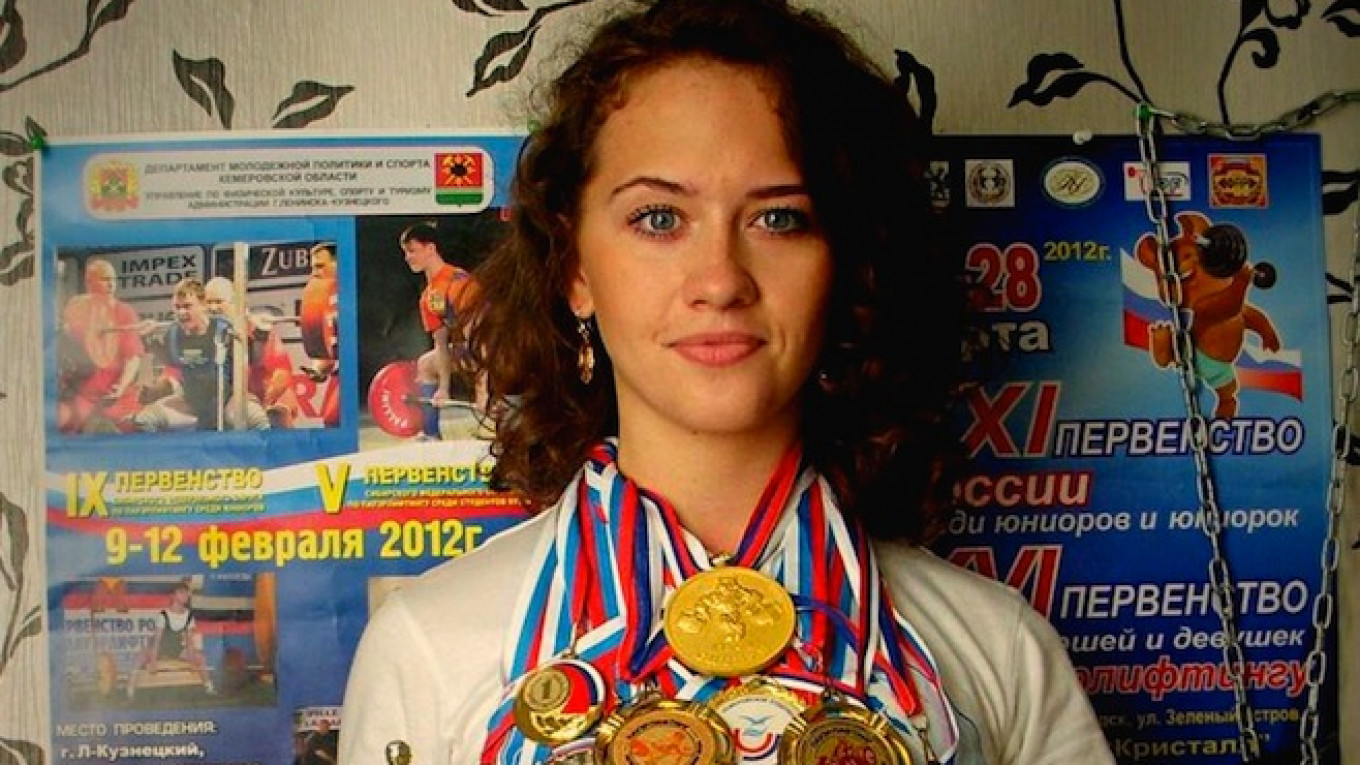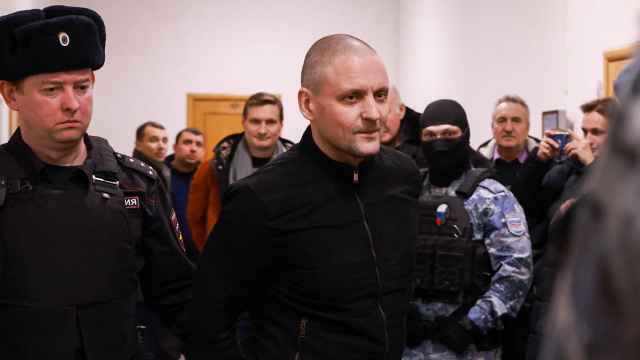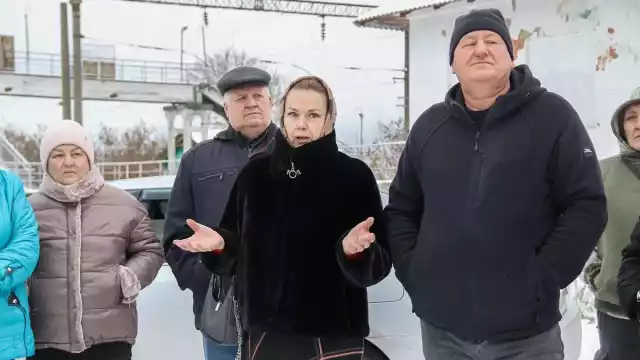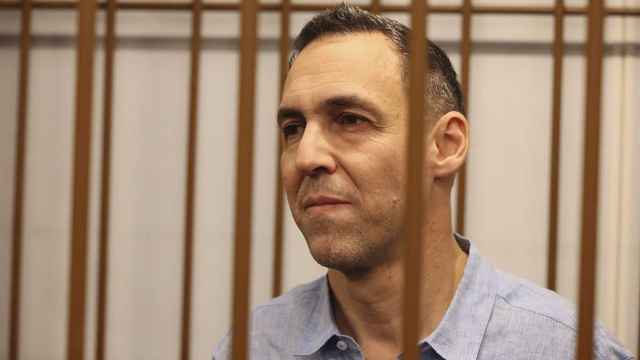Russian Internet users have raised more than $80,000 to fund a documentary film about a young woman sentenced to years in prison for stabbing a man who allegedly tried to rape her and a court that ruled he had acted properly by first kissing her during his "advances."
The sentence, handed down by a court in the Altai region last August, prompted a number of Internet users to comment on the case, drawing emotional and often contradictory responses to its fusion of women's rights, sex, the vagaries of the Russian court system and, as of this week, the involvement of an award-winning filmmaker.
Tatyana Andreyeva, at that time a 20-year-old female powerlifting athlete, was sentenced to seven years in prison by the Biysk District Court for stabbing a man who, she claimed, had laced her drink with a sedative before carrying her into a motel room and trying to rape her, according to interviews and court materials posted online.
An appellate court slashed one year off the sentence two months later, conceding in its verdict that the man's behavior was "provocative" and could be viewed as an extenuating circumstance for Andreyeva.
But three appellate court judges argued in their verdict that as long as the man did not try to beat her into submission after she resisted his advances by slapping him in the face, the man's intentions were honorable and that Andreyeva had by far exceeded her right to self-defense when she grabbed a knife.
"Though [the man] was seeking sexual intimacy from her, he conducted only actions that were aimed at arousing in her a desire to reciprocate: According to statements that Andreyeva herself made during hearings and that were soundly used as the basis for her sentence, the victim began to 'kiss her in the neck, touch her buttocks and pull her toward himself,'" the appellate court said in its verdict posted online.
"Following her requests to stop his advances and following the blows she inflicted to his face, [he] continued his 'advances,' but did not inflict physical pain, did not hold her down and did not voice any threats,'" the verdict said. Touching the woman did not constitute attempted rape, the court ruled.
Prominent Internet activist Anton Nosik slammed the verdict in his blog on Thursday, saying the court had provided a "detailed clarification, what kinds of sexual violence against a woman this judicial instance considers appropriate, acceptable and prohibiting the woman the right to self-defense."
The court also dismissed Andreyeva's testimony that the man grabbed her by the neck, saying: "You think you are going to get away?," citing the lack of bruises on Andreyeva's neck when she turned herself in to police, according to the verdict.
The man, 26-year-old Sergei Cherkaikin, died in hospital a day later from the stab wound, and Andreyeva is currently serving out her sentence in a prison colony.
"The Case of Andreyeva"
It wasn't long before the case came to the attention of independent documentary film director Yelena Pogrebizhskaya, who this week posted an appeal on Russia's crowd-funding website Planeta.ru to raise 2 million rubles ($55,000) for a film.
"The story of this girl got to me," Pogrebizhskaya said in her post. "At first I couldn't tell why. Perhaps I am putting myself in her place and asking myself: What would I do in that situation? And I answer that I would do the same as Tanya has done."
Several prominent Russian websites and online personalities such as Nosik and novelist Maria Arbatova picked up the appeal, and the response by Internet users seemed so overwhelming that donations cleared the 2 million-ruble threshold by Thursday, and rose to more than 3 million rubles ($83,000) by Friday morning.
Anything in excess of the 2 million rubles needed to make the film will be forwarded to Andreyeva's family to cover her legal costs, Nosik said in his post on Ekho Moskvy website.
"The good news is that in the very first 12 hours after the post, the whole sum has been raised that is needed to make the film 'The Case of Andreyeva,'" Nosik said in his blog Thursday.
But the reaction from the online community has not always been so positive. Commentary sections on websites posting about the film are streamed with redaction lines where apparently offensive comments had once been and that now read: "Comment deleted."
"Grabbing a knife and killing a person only because he, being a normal guy, tried to have sex with a girl is at least excessive, and at most [deserves] a prison term!" said one of the earlier comments that the filmmaker quoted in her post.
"Especially since she hadn't been a virgin for quite awhile at that time, as far as I understand," the comment said. "At most she could have filed a police report against him, and then who knows — she may have liked it."
One commentator proposed that Andreyeva should be "executed," and blamed her for showing insufficient remorse for stabbing a man, as any "normal girl" should. Another said Andreyeva had "herself provoked the situation, and now is trying to blame the guys."
According to Andreyeva's testimony and her defense lawyers, cited by Russian media reports, Andreyeva and her female friend were planning to take a bus to a lakeside beach when they spotted a car with two male acquaintances — Cherkaikin and his friend — and asked for a ride.
During the trip, Cherkaikin drank beer, and doctors later confirmed that he had alcohol in his blood, news reports said.
On the way back to town, he reportedly offered to buy more beer for the women. Andreyeva, who had been training for sports competitions, said she had refused but accepted a bottle of water, which the men brought to her from a store, news reports said.
Andreyeva said she started losing consciousness after drinking the water — evidence, she argued, that the men laced her drink with a date-rape drug.
Images posted online from a video camera at a motel where Cherkaikin and his friend had taken the women showed a man carrying Andreyeva draped over his shoulder across the lobby. But the presence of any drug in her body was never confirmed because no medical tests were conducted, news reports said.
Andreyeva said she regained consciousness a few hours later as Cherkaikin advanced toward her, his shirt already removed, and proceeded with the attempted rape, news reports said.
Pogrebizhskaya, the filmmaker, said the court appeared to have sided with critics who claimed that Andreyeva had provoked the incident.
"Today, in the view of our court, if a woman wants to defend herself, she should first allow herself to be raped," Pogrebizhskaya said in her post. "Then the court will believe her. Or if she is also beaten half-dead, only then she has the right to self-defense, in the view of the Russian law."
The appellate court said in its verdict that the sentence was appropriate for the "danger to the public" of Andreyeva's crime.
See also:
A Message from The Moscow Times:
Dear readers,
We are facing unprecedented challenges. Russia's Prosecutor General's Office has designated The Moscow Times as an "undesirable" organization, criminalizing our work and putting our staff at risk of prosecution. This follows our earlier unjust labeling as a "foreign agent."
These actions are direct attempts to silence independent journalism in Russia. The authorities claim our work "discredits the decisions of the Russian leadership." We see things differently: we strive to provide accurate, unbiased reporting on Russia.
We, the journalists of The Moscow Times, refuse to be silenced. But to continue our work, we need your help.
Your support, no matter how small, makes a world of difference. If you can, please support us monthly starting from just $2. It's quick to set up, and every contribution makes a significant impact.
By supporting The Moscow Times, you're defending open, independent journalism in the face of repression. Thank you for standing with us.
Remind me later.






